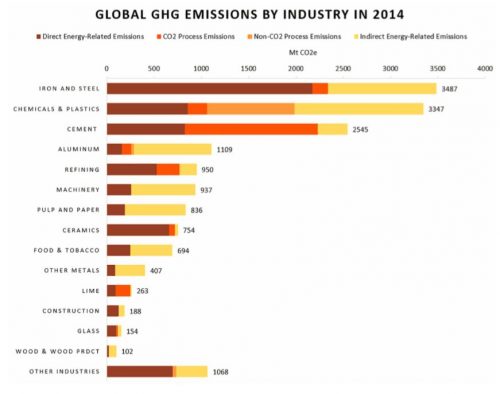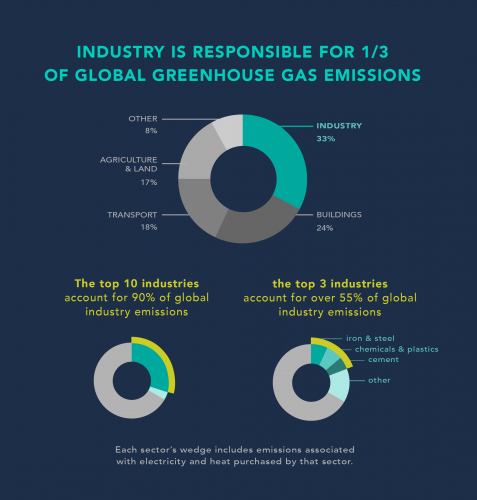Fully decarbonizing global industry is essential to achieving climate stabilization, and reaching net zero emissions by 2050–2070 is necessary to limit global warming to 2°C. Industry was responsible for 33% of global anthropogenic emissions in 2014 (including direct energy and non-energy industrial process emissions, as well as indirect emissions from purchased electricity), and direct industrial emissions rose 65% from 1990 to 2014.
More than 90% of these emissions are from about a dozen industries, so a limited set of product and process improvements can secure large emissions reductions. This research paper is an authoritative guide to decarbonize global industry, covering the necessary technical measures and policies needed to boost technological deployment to make net zero industry a reality.
Employing the right technologies and policies can achieve net zero industrial emissions and make investing in cleaner industrial processes more profitable. Key technologies include material and industrial energy efficiency, carbon capture, electrification, and zero-carbon hydrogen.
Companies that invest in improved technology will be positioned to be leaders throughout this century, when concern over climate change is likely to make inefficiency and high emissions increasingly serious business liabilities. The right policies also ensure a just transition for displaced workers and complement the human and economic development of low- and middle-income countries.
Resources
Research Report: Technologies and policies to decarbonize global industry: Review and assessment of mitigation drivers through 2070

Full research report detailing the technologies and policies that can reach net zero global industrial emissions by 2050–2070. The paper was co-authored by 30 experts who attended the Aspen Global Change Institute workshop on Industry Decarbonization in November 2018.
This paper develops a blueprint to help action policymakers and businesses address the inter-connected concerns of innovation, technical feasibility, cost-effectiveness, an enabling policy environment, and the need for social equity in decarbonizing the global industrial economy.

Infographics:
High resolution infographic and individual slides detailing global industrial emissions, emissions by industrial sector and geographic region, as well as the main strategies and policies to reduce industrial emissions.
